
This
week you may get a chance (if you look hard enough) to catch A
SCANNER DARKLY in limited release. The
latest offering from Richard Linklater takes what he had done with WAKING
LIFE and brings it to another level. In
what may be the most faithful interpretation of a Philip K. Dick novel,
Linklater takes a look at what we may become in only a few years; paranoia,
drugs and a pretty messed up future where we are not in control.
Will
critics dig it? Is there an audience
for this kind of dialogue heavy trip into the future?
And how cool is it to see Keanu Reeves and Winona Ryder together with
Richard Linklater at the helm.
Winona Ryder is
back and she is just as cool as she ever was.
She was charming and very sincere; makes the idea of a sequel to
Heathers pretty damn hard to resist.
Ryder,
Reeves and Linklater checked in at the Four Seasons in
Beverly Hills
a couple of weeks ago to discuss all things Darkly.
| Keanu Reeves |
Richard Linklater |
Winona Ryder |
 |
 |
 |
Winona
, we don?t get to see
you in movies all that often. What
does it take to get you back to work?
Ryder:
This guy [pointing to Richard]. I
could do anything for him.
But
are you sort of slowing down on the acting?
Linklater:
Winona
was working. [To
Winona
] You just came from the set right?
Ryder:
I haven?t slept yet. I
came from work.
What
movie?
Ryder:
It?s called Sex and Death 101.
Winona
and Keanu, did knowing A Scanner Darkly was animated change the way you
prepared for it?
Ryder:
I didn?t even think about it. Because
in Waking Life; which is really one of my top five favorite movies of all
time. I felt like the
performances came through so much in subtlety.
So just seeing that, I knew this was going to be that? times a
thousand but if I thought about it I would? it would have probably been
distracting. So I just didn?t think exactly the same as?
Linklater:
No, we never talked about it much?
Reeves:
I don?t know. Not
really. No.
Linklater:
Some of the other actor?s maybe? Actually Woody (Harrelson),
(Robert) Downey and Rory Cochrane, I think because of their characters, (it)
pushed them a little bit but that really didn?t have that much to do with
the animation it was just kind of their characters.
A little more tweaked out.
Keanu,
Winona? Dracula? Since
that, how much fun was it to get together and not have those costumes and
the accents this time?
Reeves:
Are you kidding? Those
costumes were fantastic!
A
fun reunion though, huh?
Ryder:
Yes. Ah, yes, very, very
much so. I worked with (Robert)
Downey
uh, when I was about fifteen, and so he played my brother on this movie
(1969) a long time ago and it was really great to be around? it felt
really safe. And Keanu would
help me especially? with the material, because it was very challenging.
Reeves:
Go on? No way?
Ryder:
No? You have no idea.
Reeves:
No? no.
Could
you elaborate on what you just said, in regards to the help?
Ryder:
Well, the material is still very challenging.
Like I still? I feel like I, if we were making this movie forever I
don?t know if we?d ever be able to ever to fully? it?s an endless?
I was really, you know, (it was) scary. And he was there?
Reeves:
Well, you were playing multiple roles.
You had really kind of interesting things that were going through.
It was conceptual, it was a lot.
And I had the benefit of being? well, I had?
Ryder:
Just two rehearsals?
Reeves:
Yeah, but I mean I also had been rehearsing and hanging out with the
material? [I] was like the
greeter. I was like?
welcome? to A Scanner Darkly.
Ryder:
No. What?s hard?I
don?t want to give anything away; I mean I know you guys have seen it but
um… it was very hard to?
Reeves:
You were trying to figure out why?
I mean, even with the conceptual.
Yeah, there was a whole kind of, more of the line coming to play?
Ryder:
But it was. It was
just? (Keanu) was, he just makes me feel real safe and um? he?s there
for me.
Keanu,
you?re a big Philip K. Dick fan. What
is it you like about his work? Why
do you think it is so influential?
Reeves:
Well, he tells great stories. I
relate to the situations, you know, I find his characters in.
I love his writing, it?s funny.
He?s wickedly funny. He?s
got brutal irony. I like the
context of, there seems to be stories of like? not the little guy but
people kind of like, in situations that, all of a sudden aren?t what they
seem. You know, his stories tell
about fights of the individual against forces beyond their control, and then
being manipulated by them. Um,
he tells really good romantic stories. He
writes really cool women. You
know, there?s a kind of flesh and blood.
People are greedy. People
are angry. People are needy.
People are scared. Um,
and I find? y you know, I just? I relate to the worlds that he writes.
What
do you think are his best adaptations?
Reeves:
You know it?s funny, even when they are the best adaptations;
they?re not really adaptations in an odd way.
There almost more kind of like, ?inspired by? because there never
really quite adapted works. I?d
really say that this is the first true adaptation of a Philip K. Dick work.
[To Richard] What would you say, as a Philip K. Dick fan?
I mean outside of your own? know what I mean?
Linklater:
I don?t know, I?d probably have the same attitude toward most of
the films that everybody else does. You
know, I like Blade Runner a lot?
Reeves:
They?re some great movies inspired by?
Linklater:
Blade Runner?s the only other novel inspired that?s been done.
All the others are short stories but this is only the second novel.
Reeves:
This is the best one!
[Laughter]
Linklater:
I think this one strives for being the most ah? the most thorough
adaptation. But that doesn?t mean it?s the best movie.
Ryder:
No? It is.
Reeves:
No, yeah. Of course? of
course, yeah.
Ryder:
The best one.
Linklater:
It?s the most authentic to its source material.
Reeves:
Yes. That?s what it is.
Absolutely.
Linkater:
I?m saying? that doesn?t necessarily translate to the best.
Reeves:
That?s true. But it is.
[Laughter]
Richard,
with Waking Life is there something you learned that really prepared you for
this film?
Linklater:
Well, certainly, I mean this wouldn?t have happened without that.
I kind of saw where we could take the animation; you know?what
would be the next step with it. And
how that, I mean? as a director, I think you have all these tools at your
disposal. Possibilities of how
you can shoot your film. I?m
lucky that I have this technique; it?s one of the colors on my palette as
a way to tell a story. So when I
thought (A Scanner Darkly) would be best told this way; having done it once
before and seeing the possibilities of it; I saw how I could use it to try
and tell this story and it?s just different.
You know, it?s a very consistent look.
We had very much a visual design for it, unlike Waking Life it looks,
you know, the same throughout. It?s
very difficult to do. Much
harder than (Walking Life), like ten times harder but that was the way the
story could work so it was interesting to see that process evolve but it was
really difficult, I?m not? I don?t have another animated film I wanna
do. Not just yet.
Richard,
what was the first thing that attracted you to rotoscoping technique?
Is there a film you had directed in the past that you would have
liked to use it on?
Linklater:
I can?t really think of a film I would choose to.
The two I?ve done, I think it tells the story but look how many I
haven?t done. I don?t think
it would work for every story.
What
brought you to the technique?
Linklater:
I know the guy who wrote the software.
He?s a friend of mine in
Austin
. He was sorta creating it?
It?s a computer variant of rotoscoping.
It?s something you can do on your home computer via the software.
It still takes over five hundred hours to do one minute.
It?s very artist intensive, that?s why we spent a year and a half
doing it.
Was
it the software program itself that you said, ?That would be a great
idea??
Linklater:
It was on Waking Life, way back when, that I saw the earliest stages
of that technique. It sort of
triggered something in my brain on this story I?d been thinking about for
twenty years. Or kind of
non-story I should say, that it never worked in my mind as a film but when I
saw that it was like, okay, that works because it was not real.
But it is ?real?. That?s
why I felt it worked here because Philip K. Dick?s always asking ?what
is reality?? I think this
technique puts your brain in the right place to take in this particular
story. It seems real.
You recognize these people. It
sounds real. Their gestures are
real. It seems like the real
world, but its not. It?s a
painted world so it?s probably the right kind of split brain thing going
on in your head when you watch it. Hopefully
you just take it in like a movie. You
care about the people the same way. If
not more than you would in live action.
Ryder:
I felt it was so emotional? in Waking Life as well.
(It) was really emotional?
Linklater:
I?m hoping you can actually feel.
Ryder:
I felt really moved. It
was the stories as well.
Linklater:
I mean you can be moved when you read a graphic novel? anything?
you can be moved by?
Ryder:
Art.
Linklater:
Yeah. It doesn?t have
to be ?real?.
Would
you have done it if it was straight live action?
Ryder:
Yeah.
Reeves:
Absolutely.
Linklater:
I don?t think we could have got the movie made probably.
The story wouldn?t have warranted the twenty, thirty million budget
that it would?ve had, if it was live action.
We did it very low budget because of the animation.
Our original budget was six million.
Winona
?
Reuniting with Daniel Waters, it?s one of those things that for a
generation means a lot. Is there
any pressure to match what you did in Heathers?
What?s it like to work with Daniel after all this time?
Ryder:
It?s amazing. It?s a
dream for me. I love him very
much as a person. And I think
he?s a phenomenal writer. We?ve
been trying to do the sequel to Heathers as well, which hopefully will
happen. And it?s sort of
impossible to describe this script (Sex and Death 101) but it?s so Dan.
It?s so twisted and great. He?s
a great director? he?s wonderful.
How
much truth is in fiction?
Reeves:
97.3. Depending?
[Laughter]
Winona
, could you explain
your (personal) connection to Philip K. Dick?
Ryder:
My Godfather was actually roommates with him.
When I was really little, apparently I met a lot of interesting,
great people. I wish I could
remember because… at the time they were grown-ups to me.
How
did you create the ?scramble suit??
Linklater:
In the book it has a lengthy description, also described as a vague
blur. So it leaves it very much
up to the imagination of what that looks like.
We spent months on the actual design.
But what we came up with was every four frames, different sections of
the body change to something else. So
at no moment is it one person. Different
sections are changing. We needed
illustrators who could really draw? there?s thousands and thousands of
people in those scramble suits. And
if you look closely, there?s Philip K. Dick? there?s everyone?
looking though magazines, yearbooks. Every
ethnicity? it?s all over the map. That?s
kind of the metaphor for the movie? about identity.
It was tricky. You have
to be able to watch it. Be
intrigued by it.
How
much of the storyline, the undercover surveillance relates to the actual
situation in the
United States
today?
Reeves:
The film?s got a lot of commentary and cautionary aspects to it.
I think it?s something that all cities have to deal with? the
idea of surveillance.
Ryder:
It?s happening.
Reeves:
The rights of the individual against? the state.
Ryder:
It was really weird at the time watching the news because there were
things happening. It?s really
eerie how relevant it is, politically and socially.
I was really happy to be a part of a movie like that, aside from just
loving the movie as a personal story. I
thought Philip K. Dick was really on the money when he wrote it.
It?s amazing what he predicted.
I just think it is a terrifying time right now in this country and
the world. But I thought
(Richard) said something really interesting about, the more terrifying it
gets, the more people have to find humor.
It?s not like people just become sheep when it gets terrifying.
That is when people do?
Linklater:
Yeah, humanity sort of asserts itself.
Ryder:
Yeah. That?s what I
tried to say.
[Laughter]
Linklater:
But it is funny. I mean,
Philip K. Dick, thirty years ago writing this because he was kind of a
crackpot from the margins? paranoid, conspiracy.
That plus a generation equals?reality.
Ryder:
And to have such a personal love story? within that? is so rare. You
don?t see that in movies. (It?s)
a great way to tell a story.
Let me know what you
think. You can contact me at [email protected].


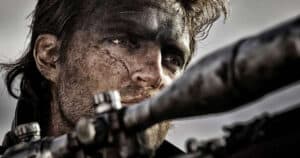
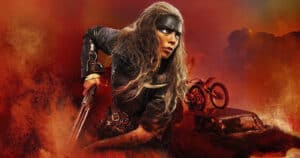
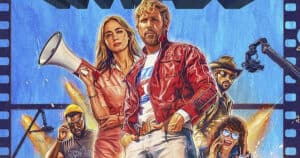
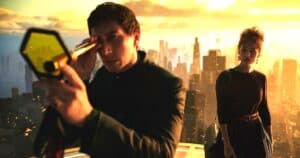
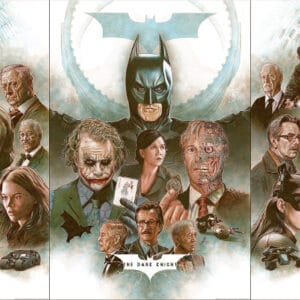


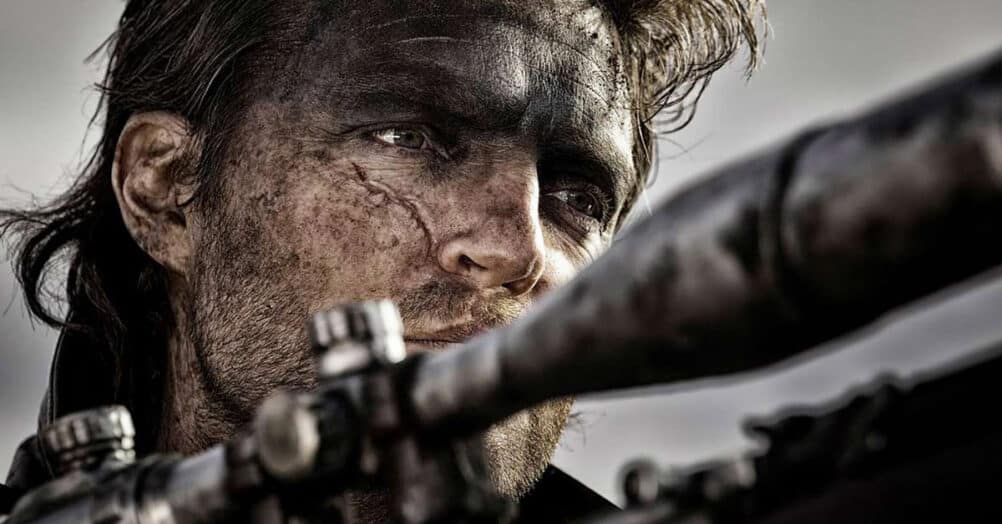
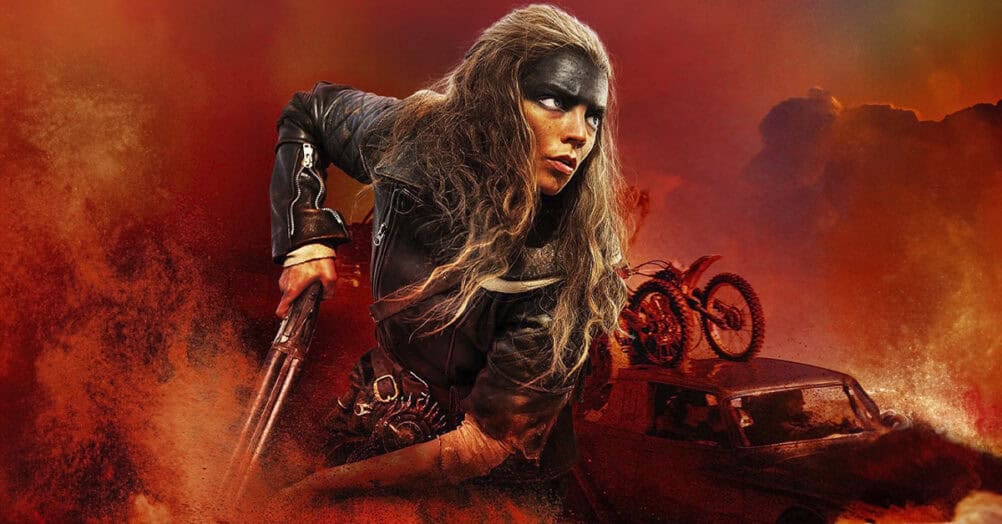
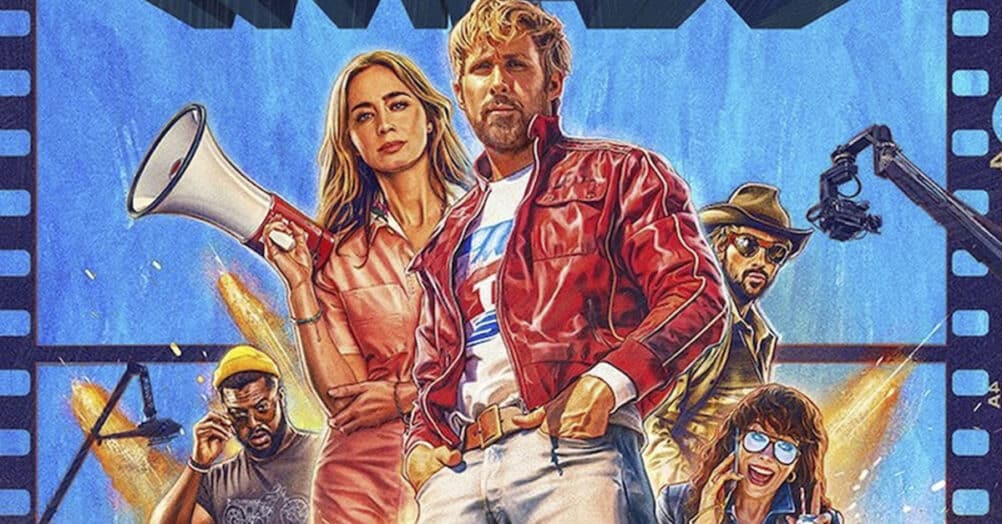
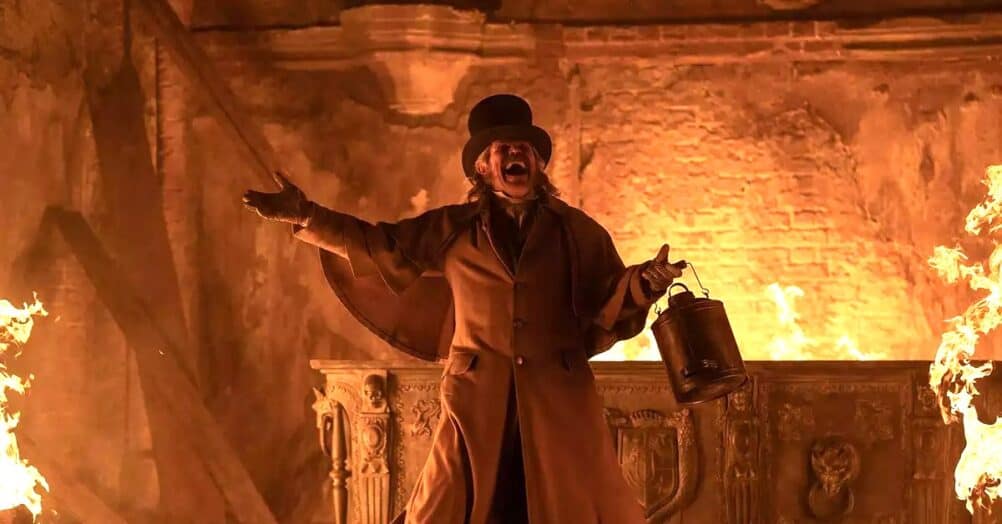
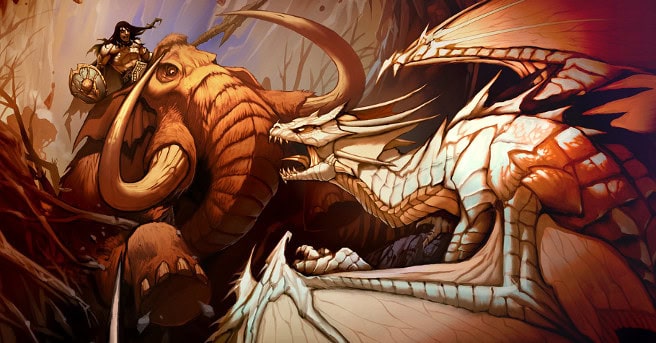
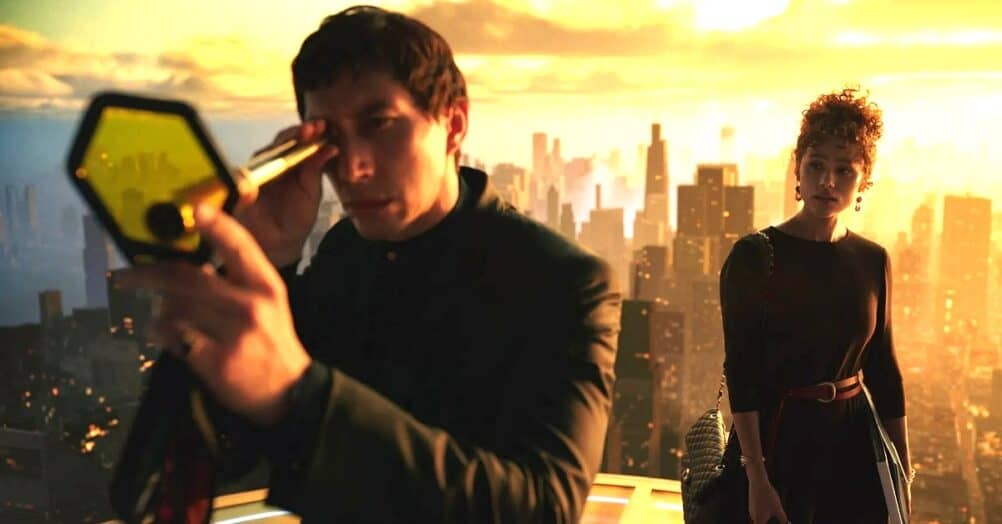
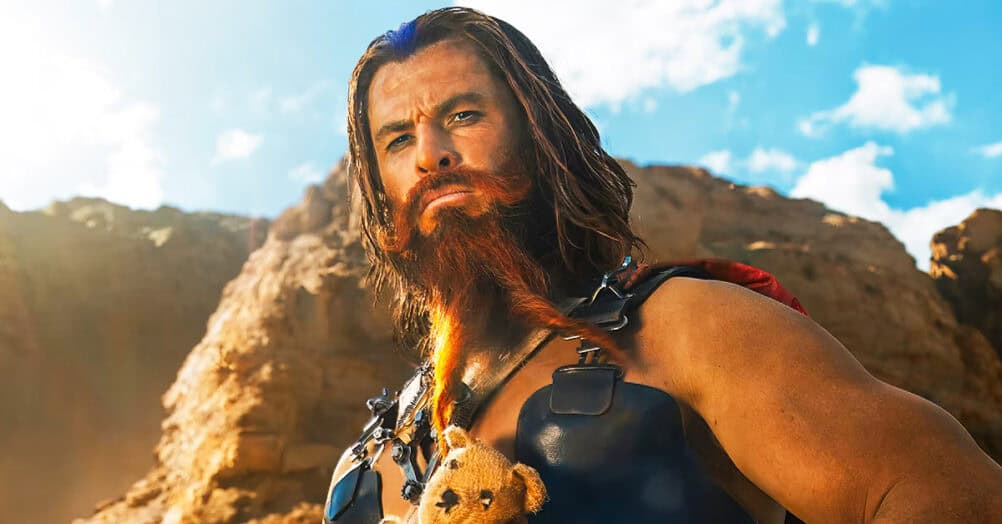
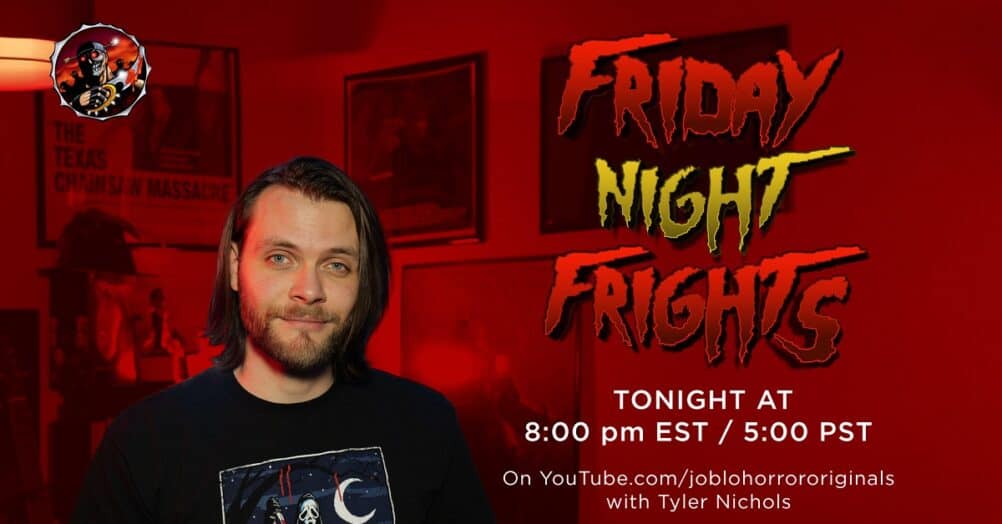
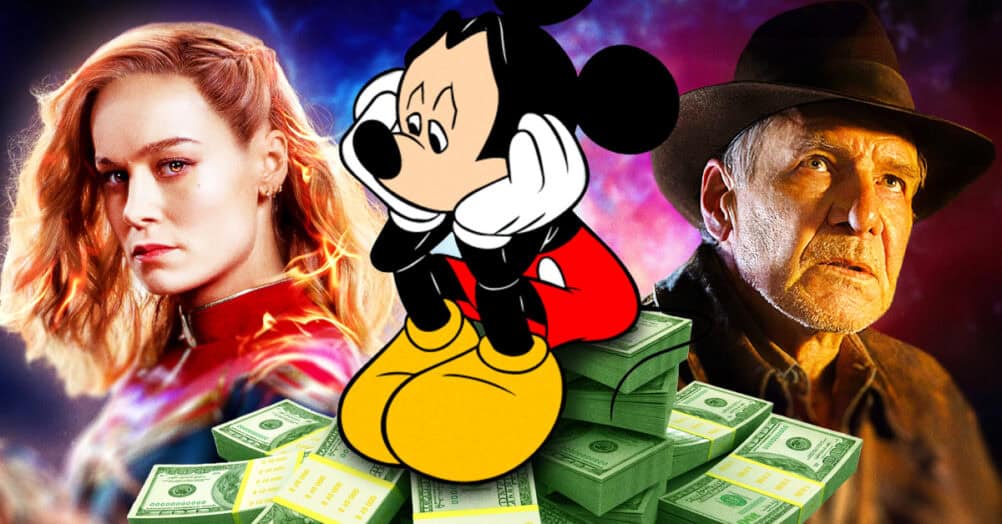
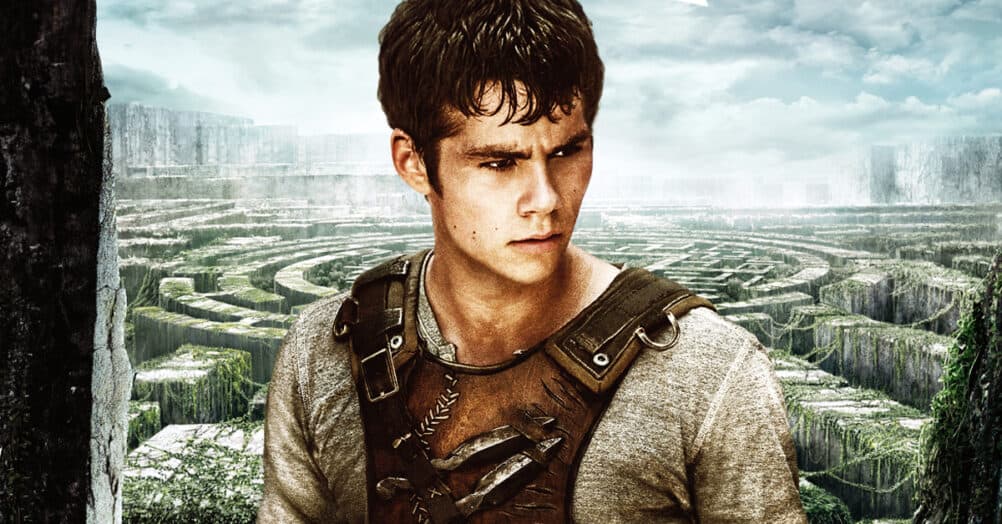
Follow the JOBLO MOVIE NETWORK
Follow us on YOUTUBE
Follow ARROW IN THE HEAD
Follow AITH on YOUTUBE